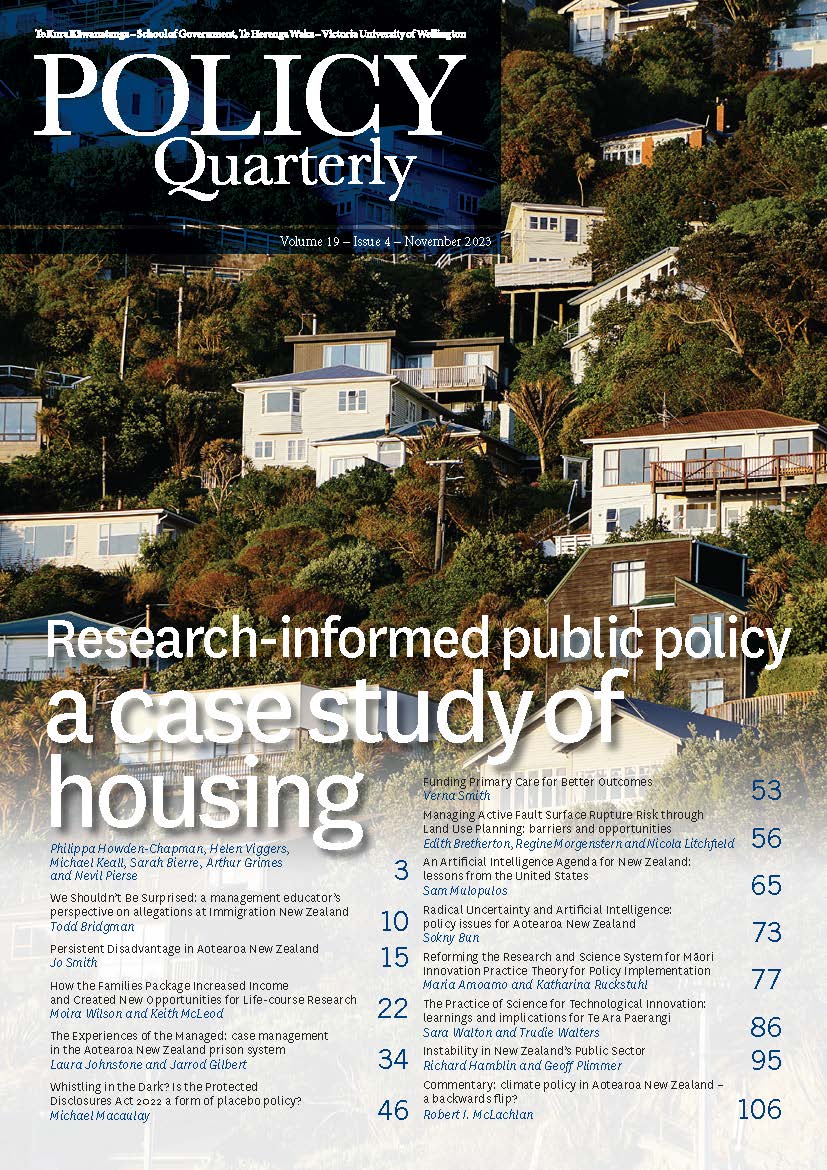Reforming the Research and Science System for Māori Innovation practice theory for policy implementation
DOI:
https://doi.org/10.26686/pq.v19i4.8571Keywords:
Practice theory, Vision Mātauranga, Research, Science and innovation, Interface research, Policy interventionsAbstract
Te Ara Paerangi proposes multi-year reforms to New Zealand’s research, science and innovation system to ‘make a greater impact on New Zealand’s productivity and wellbeing’. One objective is to ‘embed Te Tiriti’ and ‘advance Māori aspirations in the RSI system’. What does this mean in practice? Using a three-element practice theory framework, we assess the Science for Technological Innovation National Science Challenge’s approach to advancing Māori-led or -partnered science and innovation. Our analysis suggests that such frameworks provide a useful lens for assessing how policy can move to practical implementation, particularly to advance Māori innovation aspirations.
Downloads
Downloads
Published
Issue
Section
License
Permission: In the interest of promoting debate and wider dissemination, the IGPS encourages use of all or part of the articles appearing in PQ, where there is no element of commercial gain. Appropriate acknowledgement of both author and source should be made in all cases. Please direct requests for permission to reprint articles from this publication to Policy-Quarterly@vuw.ac.nz.



